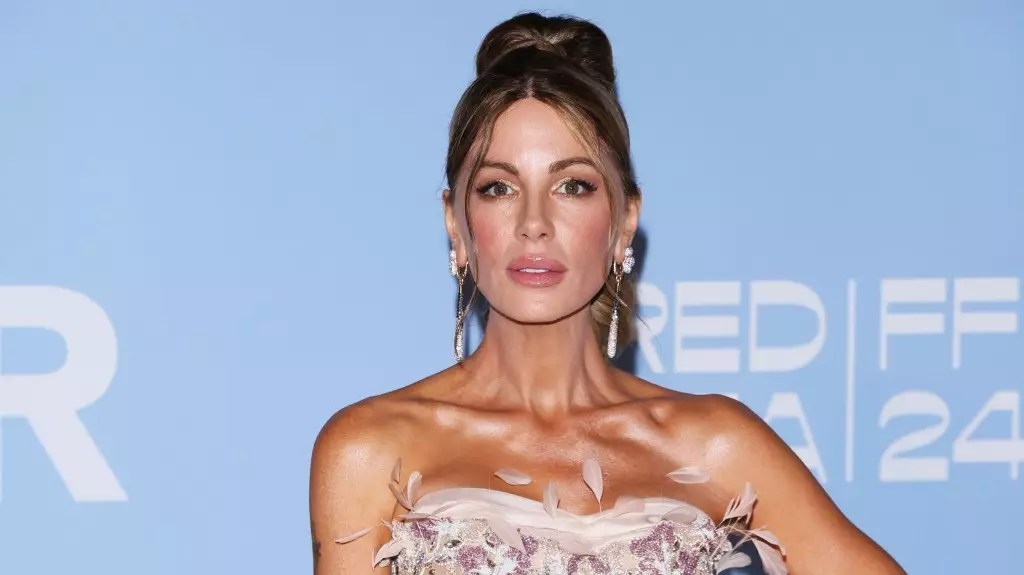In a recent Instagram video, actress Kate Beckinsale shared her deeply personal stories of enduring systemic sexism in Hollywood. Her revelations come against the backdrop of ongoing discussions about the mistreatment of women in the entertainment industry, particularly following controversies involving Blake Lively and Justin Baldoni. Beckinsale’s narrative is not just a reflection of her individual experiences but a broader commentary on how the industry often silences women who dare to voice their grievances. This article explores Beckinsale’s insights, the implications of her struggles, and the broader patterns of misogyny that persist in Hollywood.
Beckinsale emphasized that her decision to speak out was motivated by the desire to shed light on a pervasive problem within Hollywood: the institutional mechanisms that aim to silence women. She conveyed her thoughts with a sense of urgency, underscoring that the backlash faced by women reporting harassment stems from a deeply ingrained culture of misogyny. By candidly recounting her own experiences of dismissal and ridicule, Beckinsale invites viewers to witness the harsh realities many women encounter on and off set.
Her comments highlighted the ironic nature of an industry that champions female empowerment while simultaneously perpetuating harmful practices. One particularly revealing aspect of her narrative was the trauma she endured after suffering a miscarriage, a personal tragedy compounded by the pressure from her public relations team for her to participate in a photoshoot just a day later. This incident serves as a stark reminder of the often unyielding demands placed on women in show business, where personal losses are frequently overshadowed by professional expectations.
Throughout her video, Beckinsale recounted instances where she was subjected to name-calling and belittlement for speaking out about inappropriate behavior from male co-stars. The shared stories revealed a disturbing pattern: when women dare to call out misbehavior, they often face ostracism and emotional manipulation. For Beckinsale, her confrontations with male colleagues were twisted into personal attacks against her character, revealing the way misogyny is often cloaked in narratives that blame the victims for their own victimization.
This manipulation extends beyond personal interactions; it becomes institutionalized within the very fabric of Hollywood. Beckinsale’s recount of being categorized as ‘less attractive’ by groups deciding her worth based on beauty standards reflects a broader issue of how women’s appearances are critiqued and controlled. This focus on physical beauty not only perpetuates harmful stereotypes but also distracts from the talents and capabilities women bring to the industry.
Moreover, Beckinsale shed light on the alarming safety issues she encountered as a female actor. Her accounts of being placed in hazardous fight scenes, where male counterparts may have exploited the opportunity to inflict harm, underscore a shocking lack of accountability in stunt coordination. This practice not only endangers actresses physically but also cultivates a hostile work environment where women must constantly defend their safety and integrity.
Such experiences reflect a toxic culture that diminishes women’s voices, often leaving them feeling gaslit and marginalized. Beckinsale’s assertion about being blamed and ostracized for addressing her concerns demonstrates the broader systemic failures in protecting women within the industry. It is a call to re-evaluate the protocols in place to safeguard the well-being of all individuals, regardless of gender.
Despite her harrowing experiences, Beckinsale concluded her video by affirming that change needs to happen—and that it must come from within the industry. Her insistence that the status quo is unacceptable acts as a rallying cry for actors, producers, and audiences alike to confront these enduring issues head-on.
The conversations ignited by her openness are crucial for fostering a culture where women’s experiences are validated and addressed. If the industry as a whole is to evolve, it must begin by dismantling the oppressive structures that enable sexism and harassment. The stories of women like Beckinsale serve as powerful reminders of the real battles being fought in Hollywood and beyond.
Kate Beckinsale’s candid revelations expose a reality that many have long sought to ignore. As the conversation around sexism in Hollywood continues to evolve, it becomes increasingly vital for industry actors to strive for an environment rooted in respect, safety, and equality. True change can only come when both men and women engage in a collective effort to recognize and rectify systemic injustices. Beckinsale’s bravery in speaking out not only honors her own journey but paves the way for a future where all voices can be heard without fear of retribution.


Leave a Reply